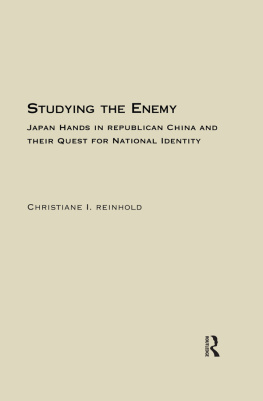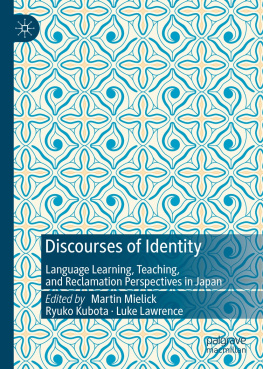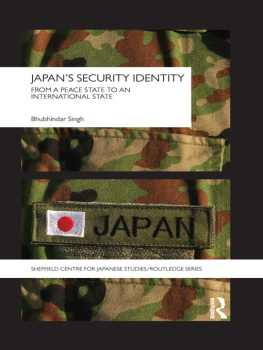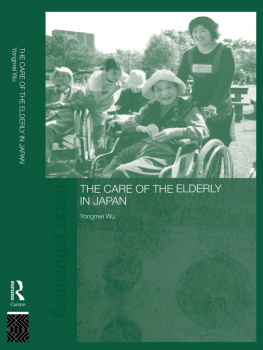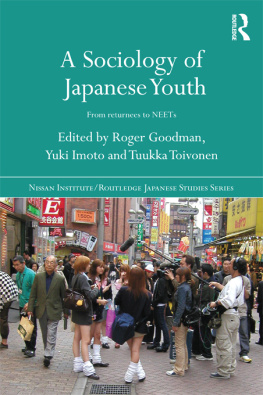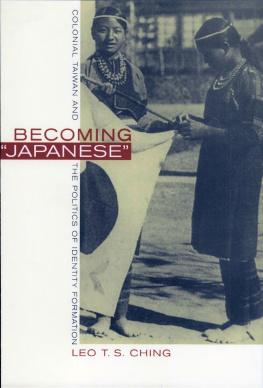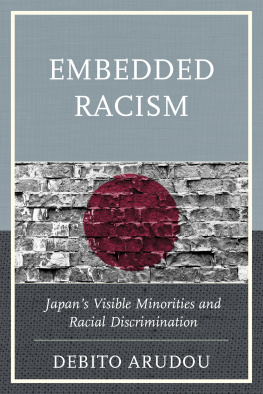NEGOTIATING IDENTITY IN CONTEMPORARY JAPAN
The problem of Japanese identity has been the core object of study in the discourse of Japanese culture (Nihonbunkaron). This work investigates changes in the Japanese ethnonational identity, as an outcome of the interplay among different processes in the transnational cultural flow, through a case study of the kikokushijo or returnees Japanese youngsters, the children of expatriate parents, who spend a significant part of their life abroad, and are socialized in a different way to their Japanese counterparts. When abroad, kikokushijo mediate between their own and the host society: on returning to Japan, they enter into a negotiation process with other Japanese students in the reintegration process into the school environment in particular, and into Japanese society in general.
While previous studies have seen returnees as disrupted from Japanese society and culture, which is characterized as homogenous and monolithic, this study reflects recent developments in the field, in which a more relational view of Japanese culture is emerging, in which difference is acknowledged and juxtaposed with uniformity and homogeneity as paradigmatic alternatives. Central to the study is the role of education in Japan, in order to understand why Japanese youngsters have to pass through a Japanese education establishment in order to reimmerse and reintegrate into mainstream Japanese society. This work describes how returnees, live, think, express themselves and construct their identity in the context of the tension between Japanese ethnonational identity and the overseas sojourn. Different discourses, including the historical dimension of Japanese ethnonational identity, culture as flow and postmodernism, carried out at the macro, median and micro levels, have been analyzed in order to gain a greater understanding of changing Japanese ethnonational identity in general, and the identity of returnees in particular, in the face of increasing mobility in a globalized world. By challenging many commonly held views concerning Japanese cultural uniqueness and by using dynamic new techniques of analysis, the author shows contemporary Japanese identity to be a discourse in which differences may exist in a complementary way, and supports the merging idea of a new type of cosmopolitan Japanese.
THE AUTHOR
Ching Lin Pang holds a BA in Oriental Philology and a PhD in Social and Cultural Anthropology from the Catholic University of Leuven and an MA in Asian Studies from the University of California, Berkeley. She has written on multicultural society, international migration and identity formation, and is currently FWO postdoctoral researcher at the Catholic University of Leuven.
NEGOTIATING IDENTITY IN CONTEMPORARY JAPAN
THE CASE OF KIKOKUSHIJO
Ching Lin Pang
First published in 2000 by
Kegan Paul International
This edition first published in 2009 by
Routledge
2 Park Square, Milton Park, Abingdon, Oxon, OX14 4RN
Simultaneously published in the USA and Canada
by Routledge
270 Madison Avenue, New York, NY 10016
Routledge is an imprint of the Taylor & Francis Group, an informa business
Ching Lin Pang, 2000
Transferred to Digital Printing 2009
All rights reserved. No part of this book may be reprinted or reproduced or utilised in any form or by any electronic, mechanical, or other means, now known or hereafter invented, including photocopying and recording, or in any information storage or retrieval system, without permission in writing from the publishers.
British Library Cataloguing in Publication Data
A catalogue record for this book is available from the British Library
ISBN 10: 0-7103-0651-2 (hbk)
ISBN 13: 978-0-7103-0651-7 (hbk)
Publishers Note
The publisher has gone to great lengths to ensure the quality of this reprint but points out that some imperfections in the original copies may be apparent. The publisher has made every effort to contact original copyright holders and would welcome correspondence from those they have been unable to trace.
For my late mother and grandmother
Acknowledgements
This book would not have been completed without the support and guidance of many people and institutions. First, I would like to express my gratitude to Eugeen Roosens, my principal advisor. His thoughtful guidance, constructive criticism, valuable comments and persistent encouragement are highly appreciated.
I have been more than lucky to encounter many mentors, fellow graduate students, colleagues and friends, who care for me and my work: Willy Vande Walle, Ulrich Libbrecht, Kazuhito Kuraoka, Toshinao Yoneyama, Kazuhiro Ebuchi, Takamichi Kajita, Johan Leman, Charles Weathers, Thomas Bickford, Naomi Takasu, Atsuko Nenuno, Shizuka Watanabe, Patricia De Witte, Sarah Van Camp, Mei-Yee Chan and Beatrice Van Eeghem.
My research has been made possible by different institutions. I would like to thank the University of Leuven for granting me a research position in the Department of Social and Cultural Anthropology. My two fieldtrips have been supported by the National Fund for Scientific Research (NFWO) and by a generous research fellowship of Japan Foundation. Furthermore, Japan Foundation has also granted a publication grant to this book. I owe a special thank to the University of Nagoya and the University of Kyoto for allowing me to use their facilities and the Nanzan School of Nagoya for allowing me to interview their students. I also owe a great deal to the International School of Brussels for letting me conduct participant observation. It goes without saying that I am especially indebted to the numerous returnees and their family for their time and cooperation. My research would have been impossible without their help and trust.
I am also very grateful to Yoshio Sugimoto, the general editor of this series, for his belief in my manuscript.
I would like to thank my family for their unfailing support and unconditional love. In particular I am greatly indebted to my late mother and grandmother for their support, strength and persistence. These two women, both illiterate by circumstance but wise and empowered by life experience, remain a constant source of strength and comfort in difficult times. To my father, a man of deeds rather than words, who always silently but willingly financed my study, I am of course very grateful. I also would like to mention Yin Yin and Ting Wai, who continue this family tradition of unfailing support and unconditional love.
Last, I would like to thank two men, who have given me the best of themselves at certain crucial periods of my life: Hsueh-Ling Huynh, who with patience and love nurtured my intellectual development and personal growth and Joan Ramakers, who has taught me a lot about the practical side of life.
1 Introduction
This book aims to study the shifting identity of Japanese returnees (kikokushijo) within a migrational context. The core findings, based on literature and fieldwork in Brussels and Japan, are drawn from my Ph.D. dissertation. In this book I adopt the terminology and the research paradigm of the anthropology of ethnicity. Particular attention is devoted to the level of interaction of returnees with the different actors and institutions in the host society. In addition their negotiation process with ordinary Japanese students (ippansei) in the reintegration process in the school environment in particular and the society in general are discussed. As an anthropologist I firmly believe that findings derived from fieldwork are meaningful because of their richness and immediacy. Of course these data are to a certain degree messy since life at the micro level is informal and at times inconsistent. In order to transcend beyond mere anecdotes, these data are embedded in processes, which take place at the median level such as the school life. At the macro level I explore the discourse on Japanese ethnonational identity, international migration and the emergent discourse on ethnic minorities and multiculturalism in Japan.



